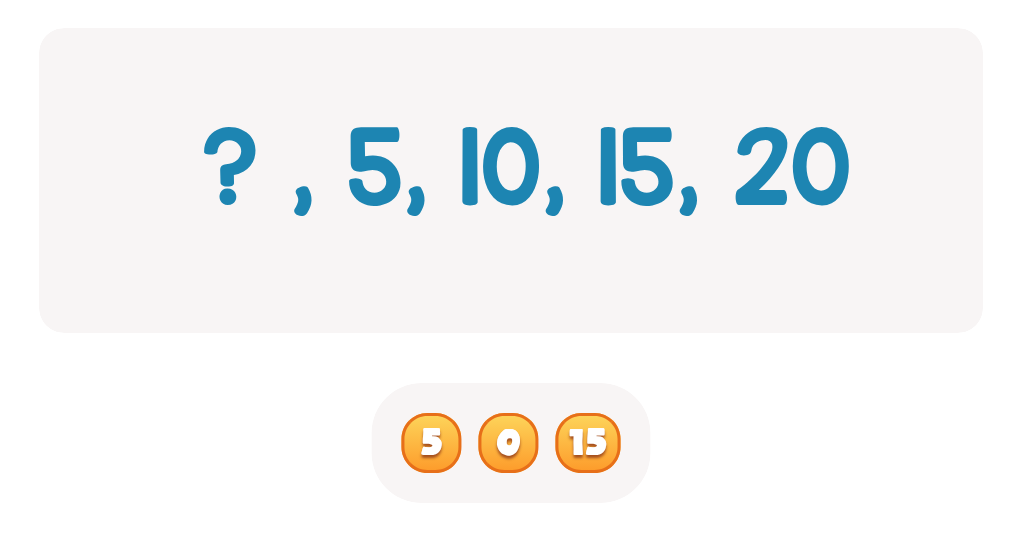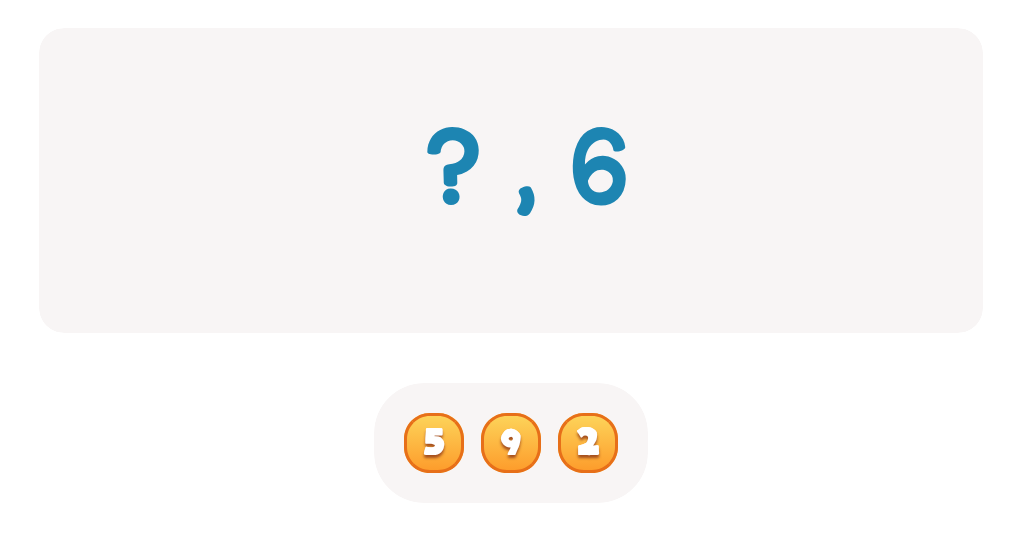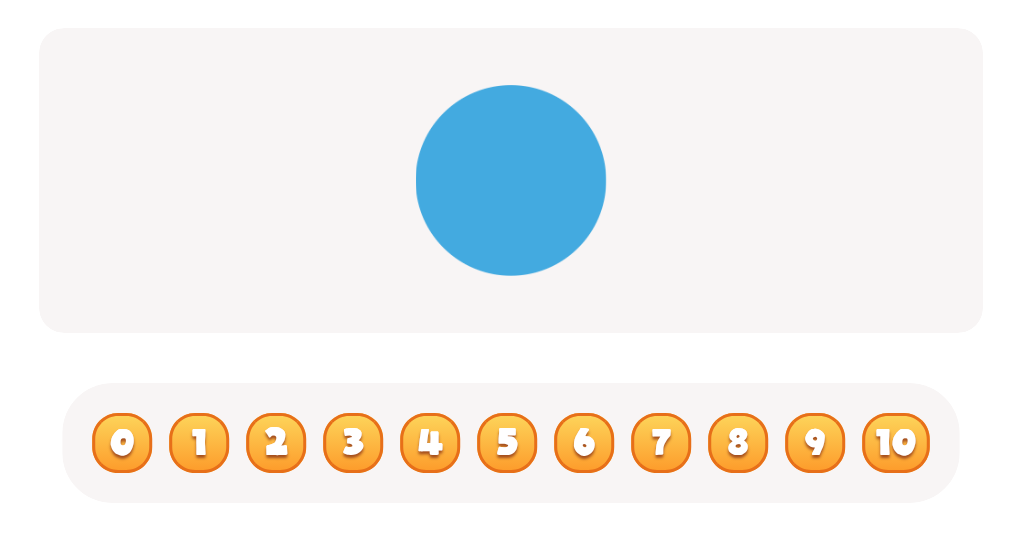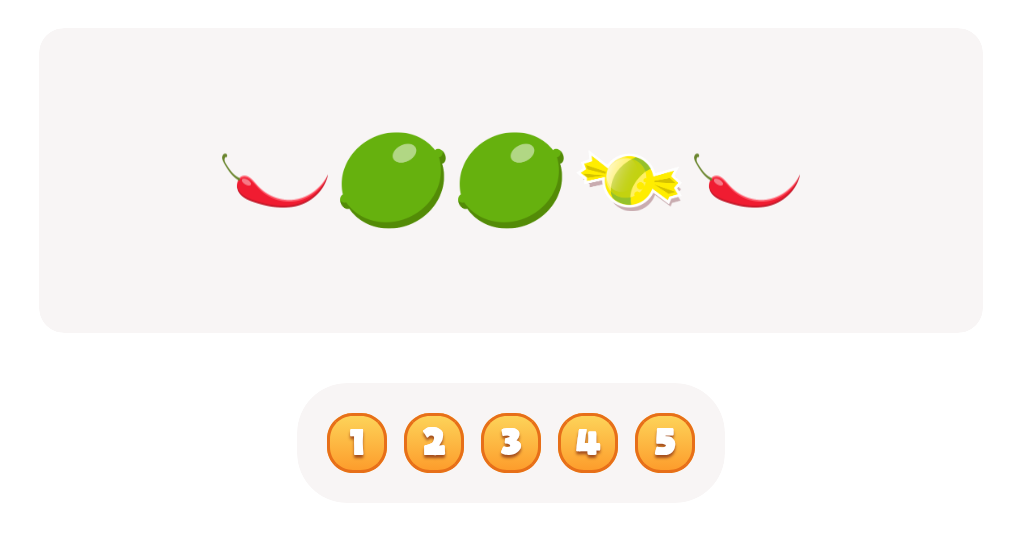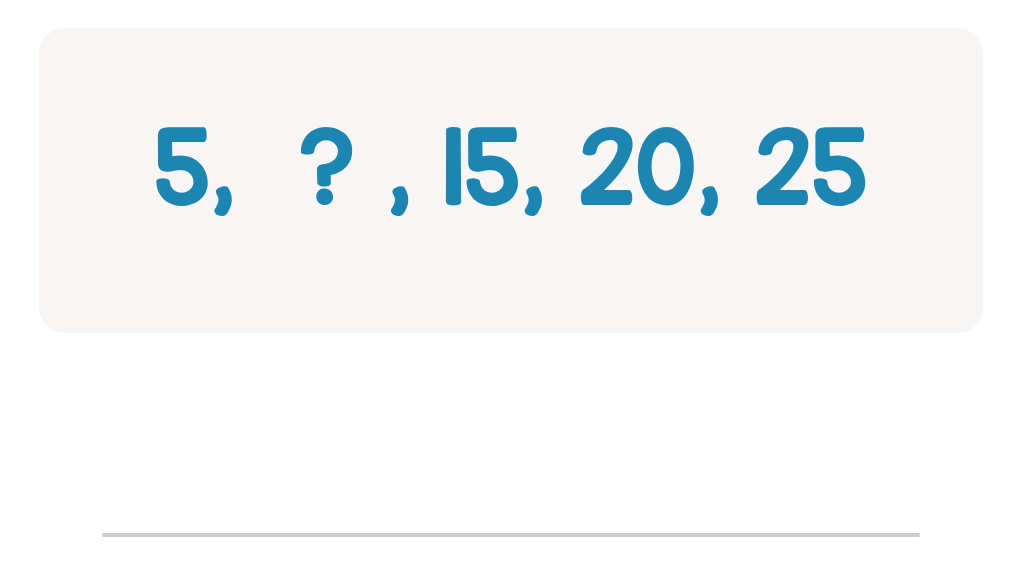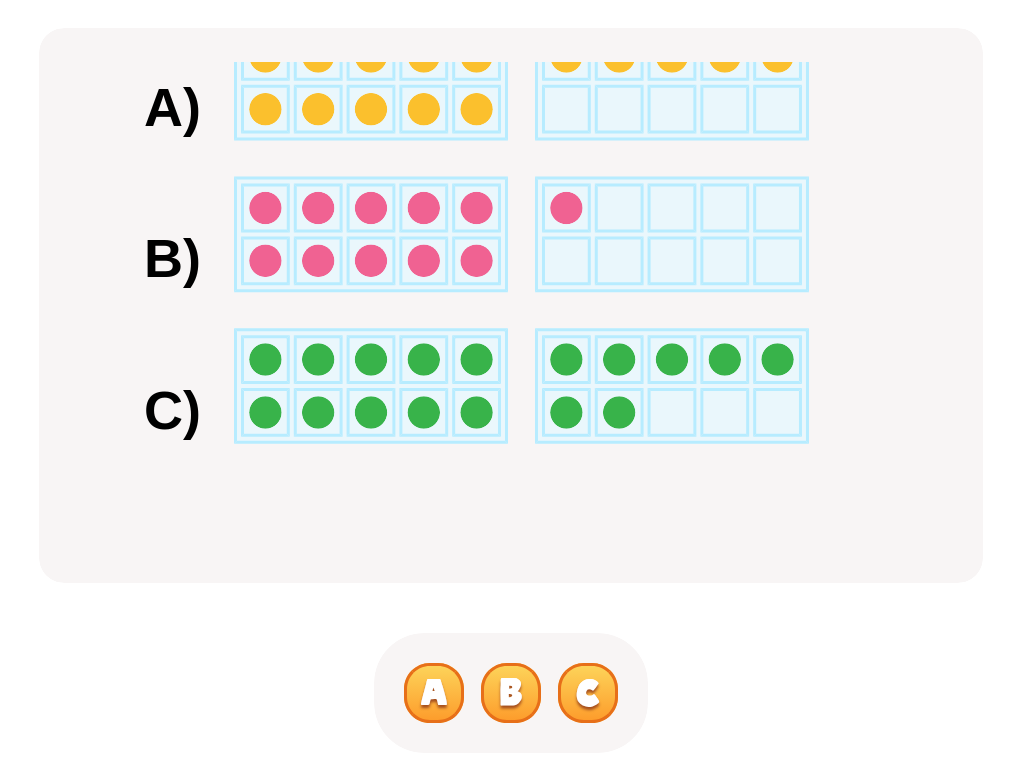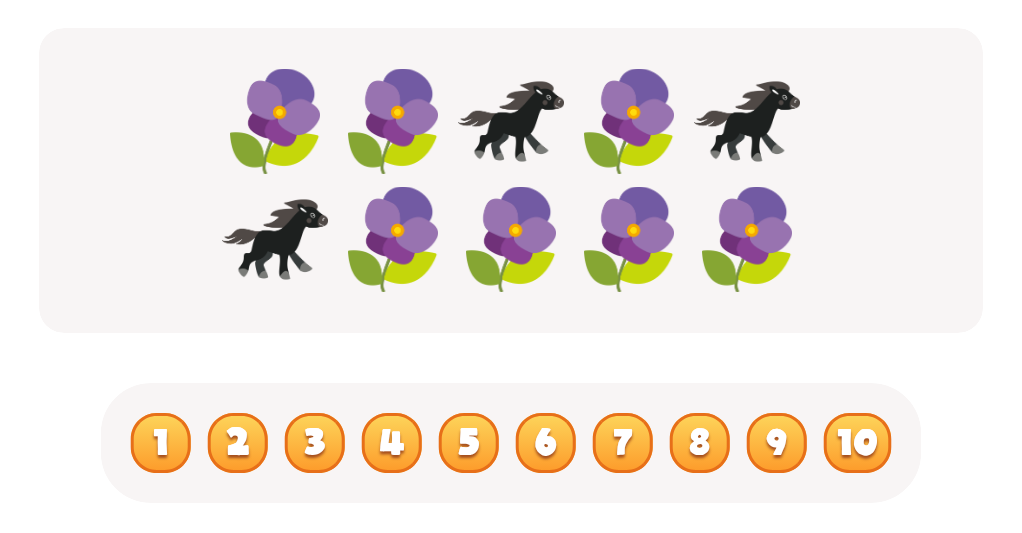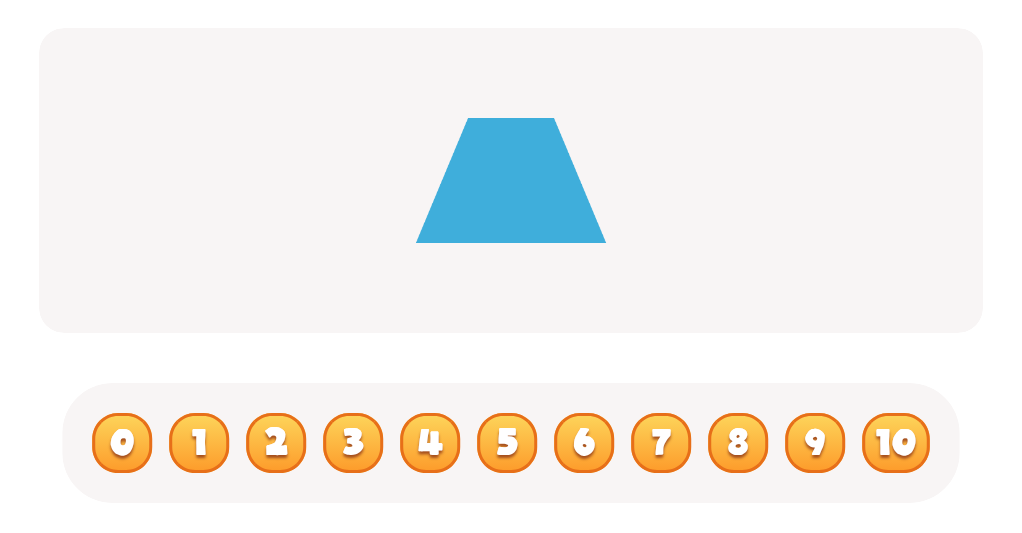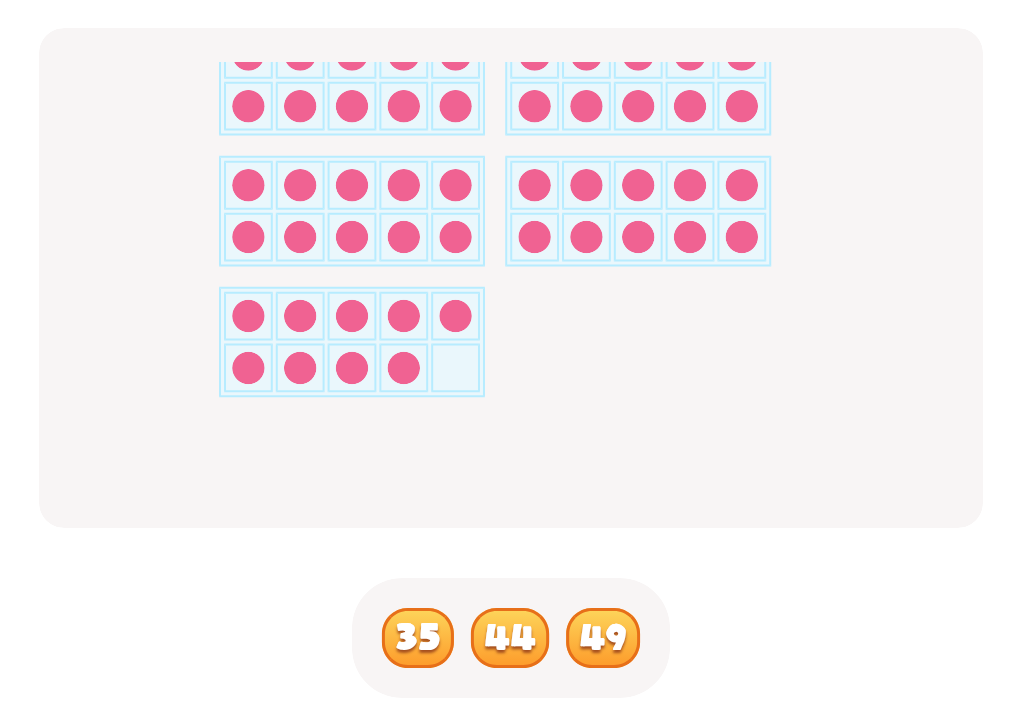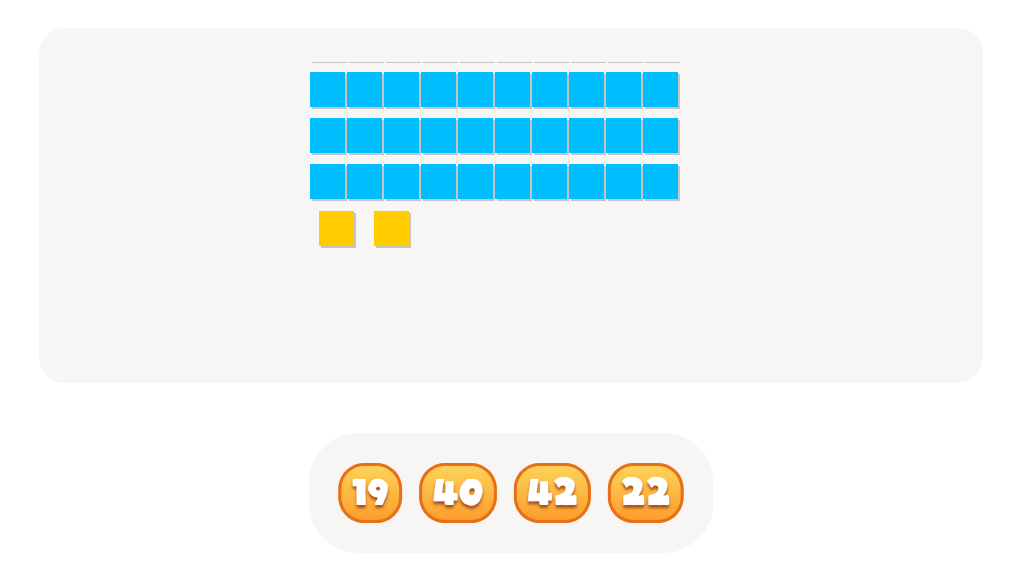Fine Motor Skills Counting Worksheets for Ages 6-9
6 filtered results
-
From - To
Enhance your child's counting abilities and fine motor skills with our specially designed worksheets for ages 6-9. These engaging tasks combine the fundamentals of counting with fun, hands-on activities, promoting both cognitive and physical development. Our uniquely structured printables help young learners improve their hand-eye coordination, precision, and number sense through diverse exercises. Ideal for classroom or at-home learning, these worksheets ensure that improvement in mathematical concepts is achieved alongside the growth of essential fine motor skills. Explore our collection today to provide your child with a comprehensive, skill-building experience!
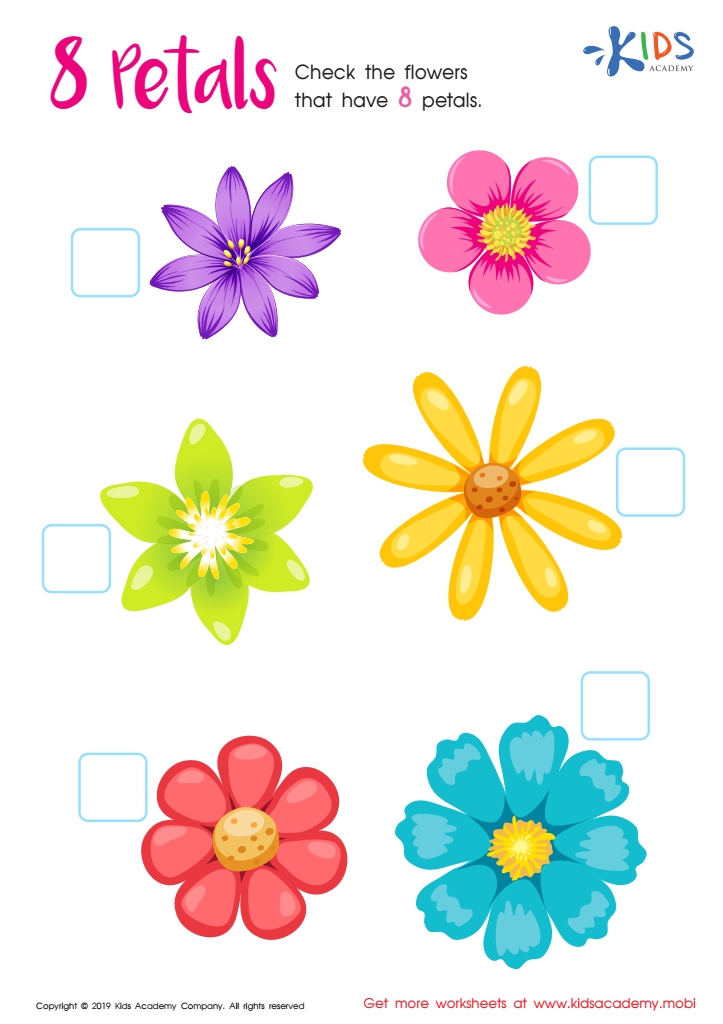

8 Petals Worksheet
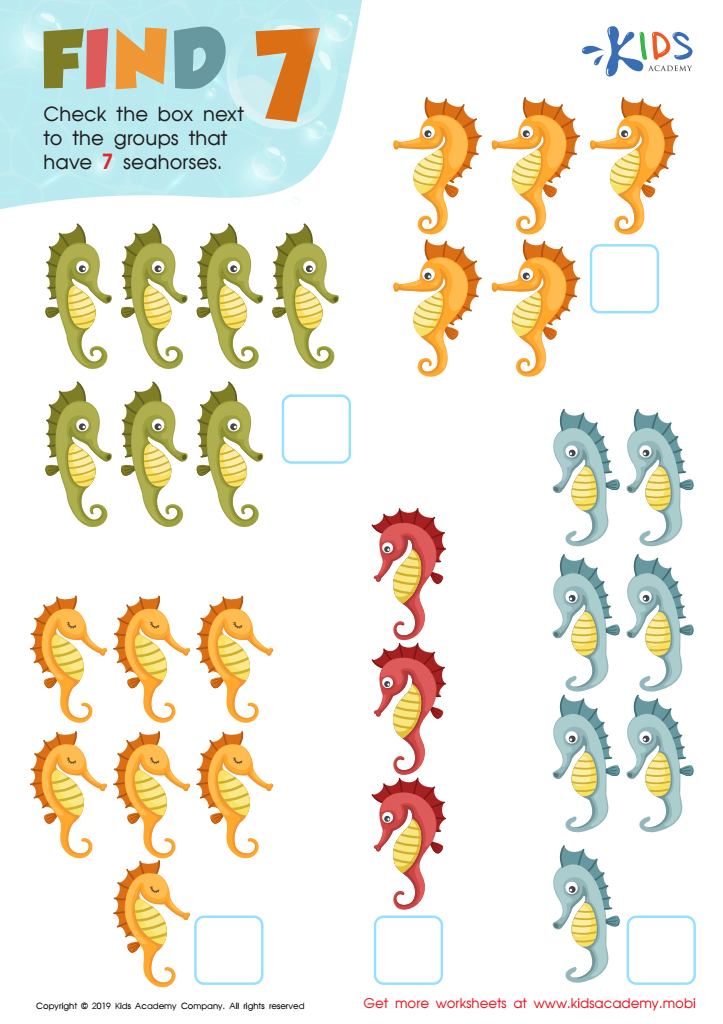

Find 7 Worksheet
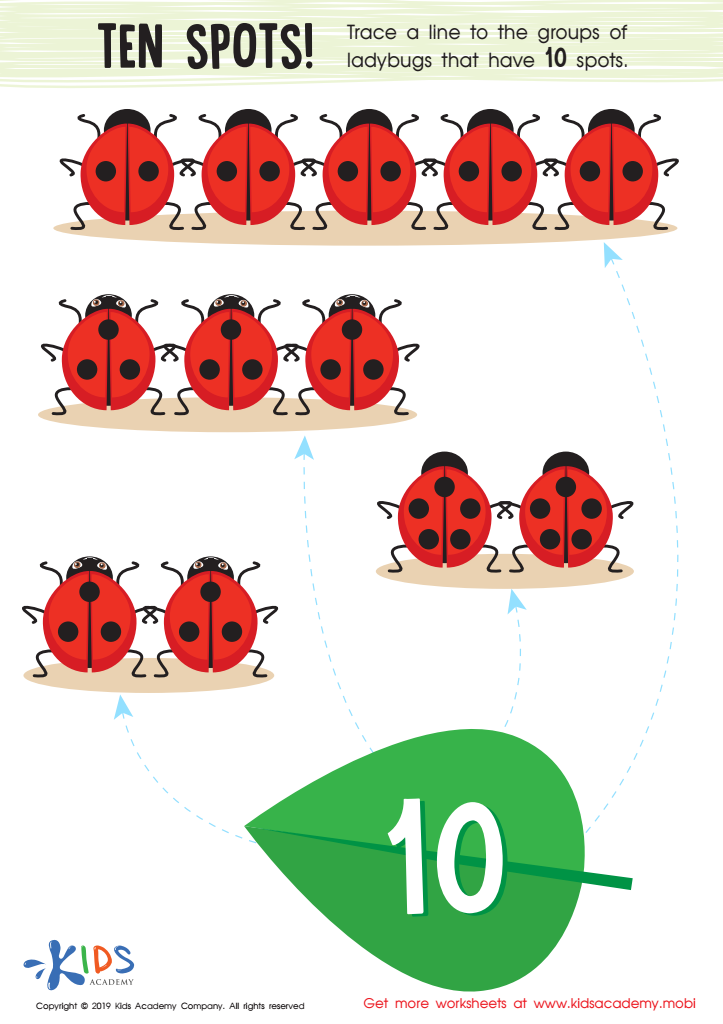

Ten Spots Worksheet


Frog Countdown Worksheet
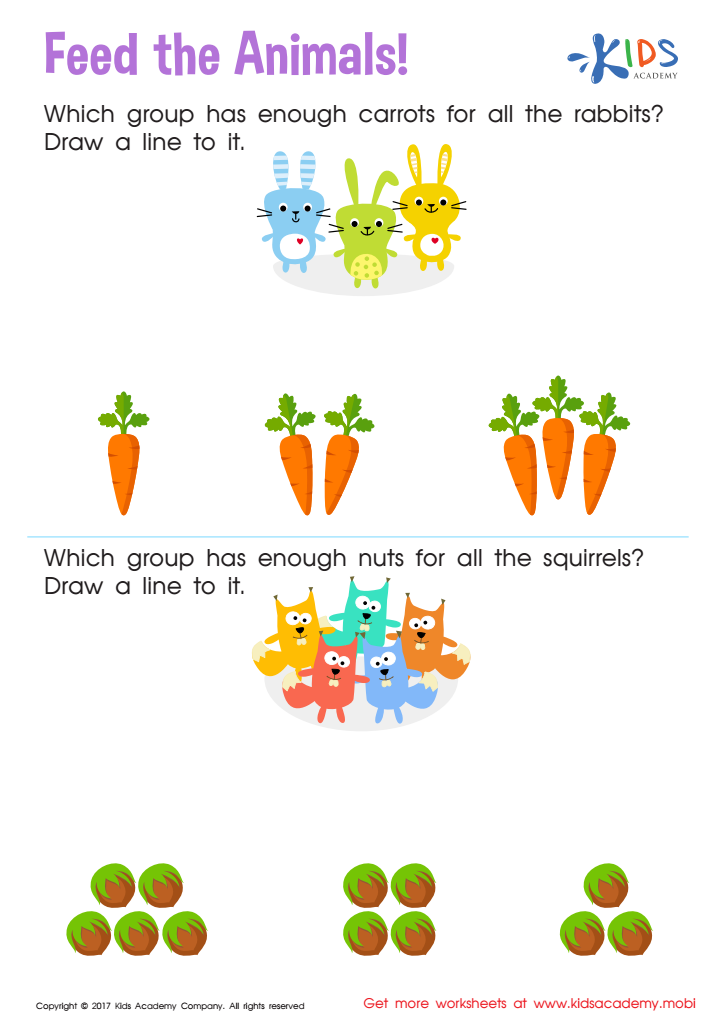

Count and Match: Feed the Animals Worksheet
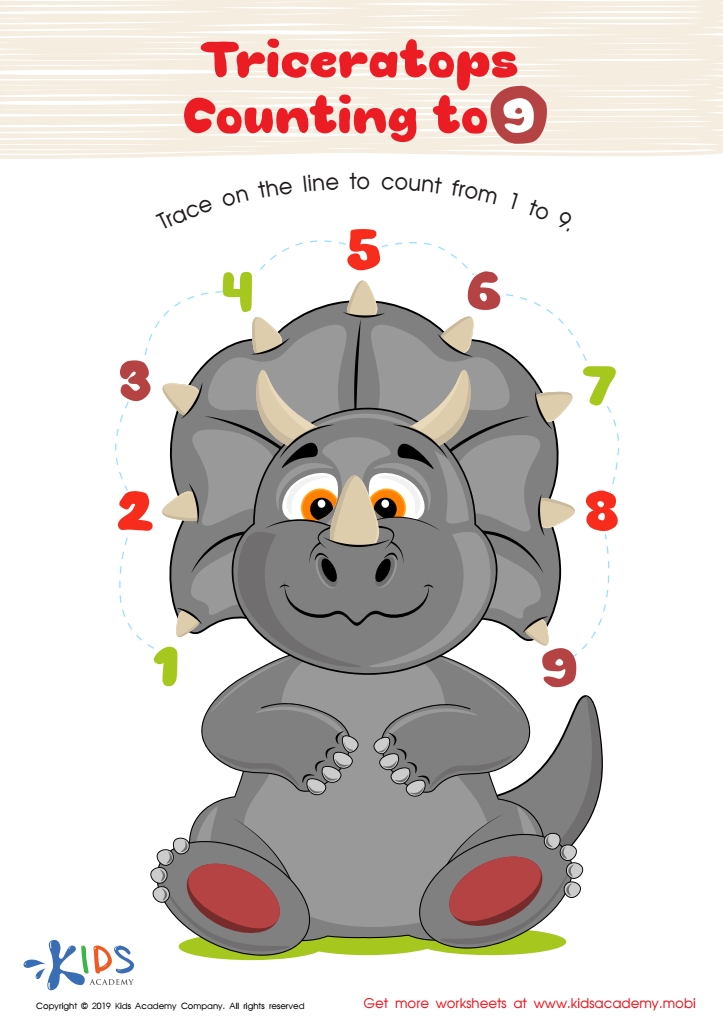

Triceratops Counting to 9 Worksheet
Developing fine motor skills in children ages 6-9 is crucial for their overall academic and personal growth. Fine motor skills involve the coordination of small muscles, particularly in the hands and fingers, with the eyes. These skills are essential for tasks such as writing, drawing, using scissors, tying shoes, and buttoning clothes. When children have strong fine motor skills, they can perform these everyday activities with greater ease and independence, fostering self-confidence.
In the academic context, fine motor skills directly impact a child’s ability to write neatly and efficiently. Mastery of handwriting is fundamental for expressing ideas in school assignments and exams. Without well-developed fine motor skills, children may struggle with handwriting, which can lead to frustration and affect their willingness to engage in writing tasks.
Moreover, activities that enhance fine motor skills—such as puzzles, building blocks, or arts and crafts—not only improve their dexterity but also boost cognitive development. These tasks require children to use their problem-solving abilities, spatial awareness, and hand-eye coordination.
By prioritizing the development of fine motor skills, parents and teachers can support a child's academic performance, independence, and overall self-esteem. Early intervention and targeted activities can set children up for long-term success in both school and daily life.
 Assign to My Students
Assign to My Students
